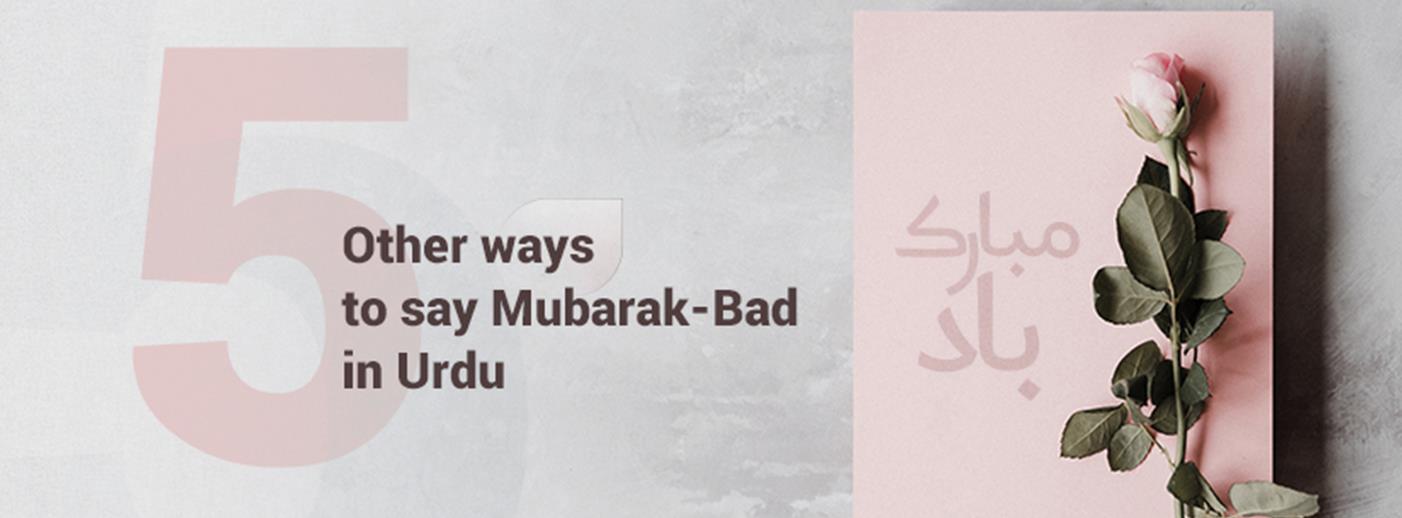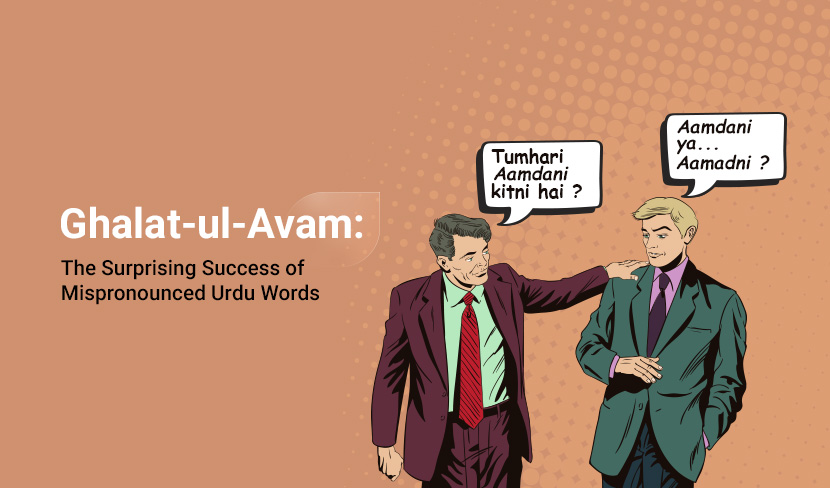Top searched
Saved words
khisyaanii billii khambaa noche
an embarrassed or ashamed person tends to vent his/her feeling by quarrelling
be-niyaaz
without want, free from want, wanting nothing, not in need, able to dispense, independent, carefree
5 other ways to say Mubarak-Bad in Urdu

Whether it’s Eid or Diwali; the daughter graduating or the son grabbing his first job; bringing home your first pet dog or that dog giving birth to a pup, however modest or momentous the occasion is, our expression is almost always the same, ‘Mubarak-Bad’.
Although it’s used as a congratulatory expression, Mubarak-Bad actually means ‘May prosperity be with you’, or ‘May you prosper’. The word comes from its Arabic root ‘Barak’ which also gives way to ‘Barakat’ or prosperity.
Strange as it may seem, the expression hardly feels overused. Why? Perhaps we’ve never wanted other ways to express our joy.
Still, to make sure that this elation never comes to a stalemate, here are 5 less-known, off-beat equivalents for Mubarak-Bad to add an unusual twist to your happy hours!
Tahni-at, often spelled and scribed as Tahniyat, is the second-most used congratulatory phrase spoken by Urdu speakers after Mubarak-Bad. Although it’s quite common, very few people know that grammatically they’re uttering a purely Persian second-person possessive pronoun. Confused? Don’t be.
Let’s take the word ‘Jaanam’. It means my love. [Jaan (love) + am (mine)]
Similarly, ‘Tahni-at’, meaning ‘congratulations, to you’. [Tahni (congratulations) + at (yours)]
And, it’s this little detail that has forced many to write it as Tahniyat; yet the meaning survives!
Tasliimaat
Taslimaat, or felicitations, comes from its root word ‘Salm’ meaning peace. The same word also brings forth the salutatory expression ‘Salaam’. Therefore, the word is also used to greet with the bow of a head, or receive someone.
So, here’s a word that sits perfectly to be used in a professional setting. Like if you land your organization ‘that’ contract, you know it’s ‘this’ word that’s going to be used a lot.
Khwushaa-Khwushaa!
Now this is an expression completely opposite to the one above.
Khwushaa means bravo, good going, or (sarcastically) great. But when redoubled it means, ‘Woohoo, that’s awesome!’
Think of your best friend getting married, would just humbly say, ‘Oh, congrats.’ No, you need a wild expression that’s up to the occasion and here you have it.
Yes, it’s somewhere between ‘Waah-waah’ and ‘Kamaal Hai’, but a zillion times more ringing, more resonant. The sound that the words create is one to die for; recite it for yourself and you’d be stuck in an endless Khwushaa-loop!
Zih-aa-Zih!
Ever heard the song ‘Zah-Nasib’? This is where Zah, or actually ‘Zih’ comes from.
Zih means great, or class! And is often used to point out the finer part of something, like Zih-Nasib, meaning ‘What Luck!’
‘Zih-aa-Zih’ was commonly used in the 16th century Persian courts upon hearing tidings. And, about the little ‘aa’ in the middle; it’s a Persian preposition used as an intensifier; like in ‘Bar-aa-bar’, ‘Lab-aa-lab’, ‘Sar-aa-sar’, etc.
Also, need I praise the phrase’s phonetics anymore? Clearly that’s how it made from courts in the 16th century to Bollywood in the 21st.
Ne’maa!
Strange sounding? Wait. Heard of the word ‘Nemat’, or the phrase ‘Upar waale Ki Nemat Hai’?
Assuming the answer to be yes, it’d be safe to assume that you’d already know that the word means blessings, prosperity, etc.
Great! Now, just like we do for Yaaraa (O friend) from Yaar and Jaanaa (O love) from Jaan, turn the simple-looking noun into a vocative, and you have for yourself a brand-new congratulatory phrase, Ne’maa, meaning ‘how good!’, or ‘goodness gracious!’
I know it’s not as sonorous as the last two expressions, still this is one to break the monotony. And, let that not slip out, it’s got the maximum wonder-effect of all.
Now that you know these new ways to express your joy, feel free to congratulate yourself with any of them, and let your expression add to the occasion!
Delete 44 saved words?
Do you really want to delete these records? This process cannot be undone





